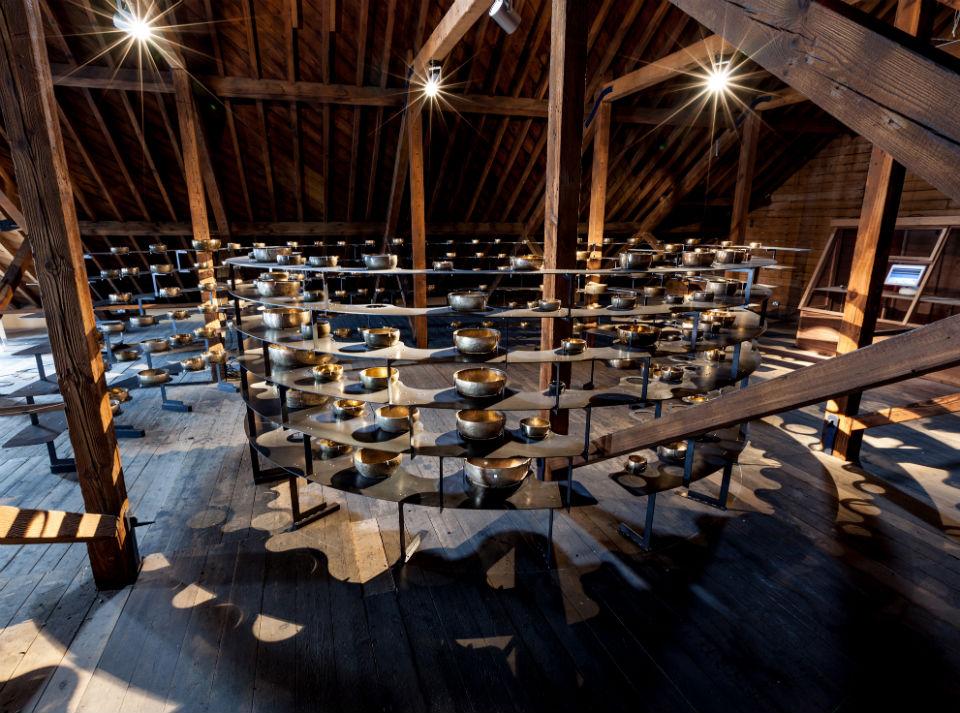Goldsmiths to participate in 1,000 year-long musical “experiment in making time”
Primary page content
Members of the Music Department at Goldsmiths, University of London, have established a relationship with a piece of music that will be continuously played for 1,000 years.

Bowls will sing for 1,000 years
Longplayer is an internationally-renowned 1,000 year-long composition that began playing at midnight on the 31 December 1999 and will continue without repetition until the last moment of 2999, at which point it will complete its cycle and begin again.
It can be heard at listening posts around the world, including one at The Royal Observatory in Greenwich. Goldsmiths’ Music Department has set up a working group of those involved in the Longplayer project with the intention of setting up a new listening post on the Goldsmiths campus. Other envisaged activities include a Longplayer Day featuring musical performances on the 21 June – the longest day of the year – and the eventual transfer of the Longplayer archive to Goldsmiths.
Longplayer was conceived and composed by Jem Finer, founder member and banjo player with The Pogues, to be performed using singing bowls – an ancient type of bell.
Jem Finer says:
“Longplayer is a piece of music I wrote at the end of the last century. It's long(ish), being a looping composition that repeats once every 1000 years.
"But really the music isn't the point. It grew out of a lifelong curiosity about time and its dimensions, traced back to temporally vertiginous childhood encounters with starlight and ancient stones and the ebb and flow of time before clocks. For me it's more about creating a space to dream one's way into long flows of time, an experiment in ‘making’ time. But everyone has their own take on it - which is as it should be.”
Longplayer could originally be heard in the relaxation zone of the Millennium Dome in London throughout 2000, and in the lighthouse at Trinity Buoy Wharf, E14, where it plays on to this day.
It can be heard via a live Internet stream and for iOS users there is an app available from the Apple iTunes store.
Goldsmiths’ involvement with Longplayer is being spearheaded by the university’s Unit for Sound Practice Research (SPR) lead by John Levack Drever, Professor of Acoustic Ecology and Sound Art and Deputy Dean of the Graduate School.
Others involved include Jeremy Peyton-Jones, Reader in Music; current PhD student James Bulley; Research Fellow Helen Frosi and Dr Iris Garrelfs, Lecturer in Sonic Art and chair of the Longplayer working group.
Iris Garrelfs says:
“We are very keen to establish a Longplayer development group to include staff in other departments within Goldsmiths. We are particularly keen to involve colleagues from minority groups that are currently underrepresented, enabling us to explore other dimensions of this amazing project.”
Anyone interested in Goldsmiths involvement in the Longplayer project should contact Iris Garrelfs at: i.garrelfs@gold.ac.uk